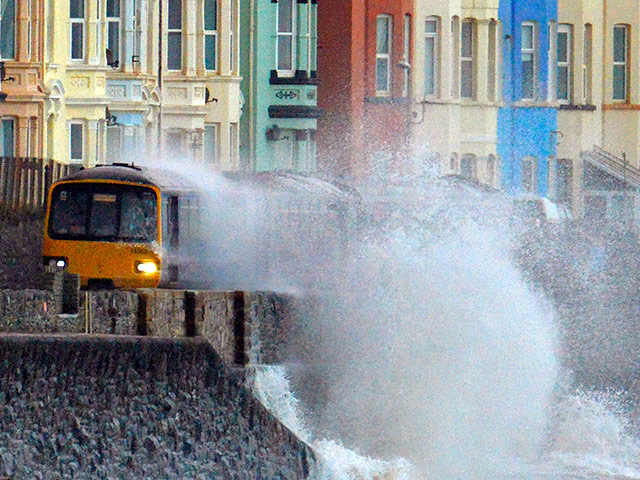In Britain, the storm “washed” railroad tracks, leaving residents dead turtles
Southwestern part of the UK was in the grip of a powerful storm. In the county of Devon, also known as Devonshire element washed railroad tracks and left more than 40,000 people without power. At the same time, moving to the coastal towns of the county in emergency conditions, the locals are dead turtles thrown ashore by the storm.
According to BBC News , the morning of February 5, it became known that in Dawlish, located on the shores of the English Channel, a huge sea wave broke embankments and eroded embankment. As a result of the disaster railway, which is one of the main routes in the region for several tens of meters out to be unsuitable for use.
Dawlish resident Robert Parker told reporters admitted that the storm that hit the city, the most like a doomsday. “It was like an earthquake,” – Parker says, and notes that he had not ever see this. The road will be able to recover no earlier than four to six weeks, according to the railroad company, in the management of which is the damaged area.
In the power of the storm was not only the residents of Dawlish. Emergency warning was announced along the entire coastline counties of Devon and Cornwall. In their territory since the mid Tuesday, February 4, remain without electricity more than 44 thousand people. Basically, power outages occurred due to strong winds, which reached the speed of 20 meters per second, and fallen trees.
Among the consequences of the disaster, in addition to damage to the rail and fallen trees, and indicated quite seemingly unusual phenomenon. In the village of Woolacombe, which is on the shore of Bristol Bay, one of the locals February 4 found dead on a bench turtle washed ashore by storm. In this regard, the veterinary services of the city urged residents to be vigilant and when the turtles tell them, reports The North Devon Gazette .
According to the weather forecast, the strength of the storm will gradually subside. Meteorologists say that the culmination of a natural disaster fell on Tuesday, February 4. On Wednesday, February 5, the strength of the storm will still be great, but by Friday, February 7, decreased markedly. British authorities meanwhile approximate overall damage from the disaster. According to the Prime Minister David Cameron, it was 100 million pounds, which is translated at the current rate is approximately 5.8 billion rubles. For comparison, the damage from prolonged flooding in the Far East, which occurred in mid-2013, the Russian authorities estimated at almost 44 billion rubles.
Natural disasters, such as the one with which the UK has had to face this week, happened before. On Christmas Eve due to a heavy storm had to cancel dozens of flights at London airport “Gatwick”. Then, more than 150 thousand inhabitants remained on holiday without light, and become victims of floods up to five people.




